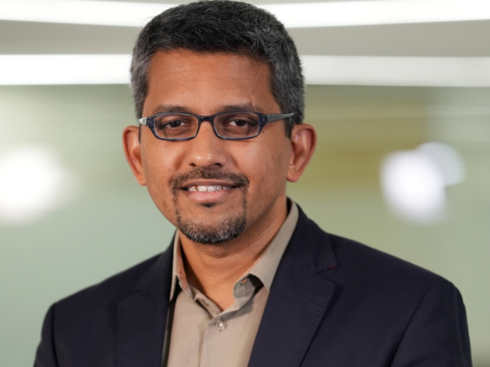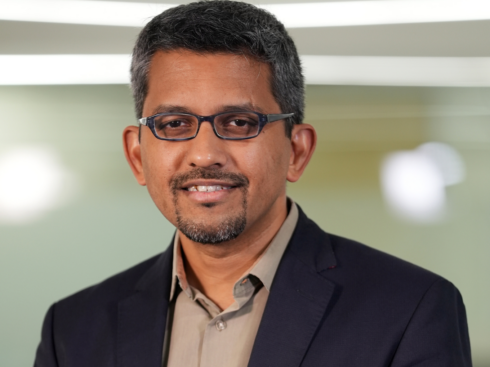
InnoFest is a grassroots movement designed to foster innovation in the Indian hardware entrepreneurial sector. The event aims to bring together creative minds of innovators and entrepreneurs to interact with industry stalwarts in a series of events designed to boost entrepreneurship and development.
In what can be seen as a break from the traditional event format, Innofest will be organised as a ‘festival for innovation.’ It plans to offer a day-long experience of interaction with India’s innovators, entrepreneurial thinkers, political leaders, youngsters creating new things, and potential patrons interested in backing challenging ventures.
The event is being organised by iSPIRT (the Indian Software Product Industry Roundtable) – with an aim to help innovators convert their concepts into scalable, sustainable enterprises.
A renowned name in the startup ecosystem – Sharad Sharma is leading the campaign as co-founder and Governing Council member of iSPIRT. He is also currently the CEO of BrandSigma Inc. and has made over two dozen startup investments as an investor. An evangelist of the hardware ecosystem in India, his past credentials include the position of CEO of Yahoo! India R&D, Chair of NASSCOM Product Forum among others.
Inc42 spoke with Sharad Sharma to chronicle a macro view of hardware startups, the role of the government and the evolving ecosystem in India.
This interview has been edited for brevity and clarity.
Inc42: How is Innofest catalysing innovation in hardware startups today?
Sharad: Innofest caters to three types of attendees – “I want to Build”, “I have built a Prototype” and “I have built a Product”. There is a dedicated content for each of them at Innofest. All theses sessions follow the Inspire-Do-Learn model. The goal is to raise the game for the innovators.
Inc42: How will India Stack benefit the hardware sector at large?
Sharad: Over the next fews years, India Stack will work to bring financial inclusion to 100 Mn families. Their consumption patterns will change and they’ll invest in better healthcare, education and living standards. This will result in a Cambrian explosion of products for these segments. These products will be created in India for Indians. They will cover a broad spectrum of areas.
Inc42: What is your advice to young innovators trying to make economically viable products?
Sharad: The era of easy IT jobs is over. In the future, one would have to be a maker to have a high living standard. This is why youngsters should give vent to their creativity. They should become solvers of India’s hard problems. Movements like Innofest will help them get started.
Inc42: How has access to funding changed for hardware startups in India in the recent past?
Sharad: Kickstarter, Wishberry and other crowdfunding platforms are the way to go. VCs come in much later in the evolution of the venture. Early-stage funding for all startups is currently tight in India. Hardware startups are affected by an even larger extent because of this (development).
Inc42: What factors have contributed for the scale in the Indian startup ecosystem?
Sharad: The domestic market is opening up, distribution channels like Flipkart have come in place and combinatorial innovation makes it possible to solve hitherto unsolved problems. These factors improve the odds of success.
Inc42: What is your say on the argument of manufacturing products for Indian markets versus foreign markets? Which is more viable for a hardware entrepreneur today?
Sharad: Both are promising markets. The big news is that the Indian market is opening up in a big way. This is where most of the future action will happen.
Inc42: Is there a need for the Indian consumer’s mindset to be changed? If so, how can this be achieved?
Sharad: Indian consumers are looking for good solutions for their unsolved problems. When such a solution appears on the scene, they tend to buy. The sewage plant of Denmark will not work well in Dharavi. The 500K medical imaging machine will coexist with a $50K machine. As more and more Indians become part of the formal economy, it’ll unleash demand for many products.
Inc42: From a survey conducted at the previous Innofest, it was seen that a lot of the responders were keen on working with policy enablers, but had little access. What are some measures to tackle this challenge?
Sharad: iSPIRT takes a holistic approach to ecosystem building. This includes nurturing innovators, policy improvement and making connections with big companies for scaleouts. The policy track involves pushing for Central and State Government (to participate in) challenge-based grants and offering money in a fund-of-funds model.
Inc42: What role can the Government of India play to help catalyse the growth of this key sector?
Sharad: GST creates a single market for products in India. The India Stack brings hundreds of millions of consumers into the buyer’s pool. Niti Aayog’s Tinkering Labs effort provides necessary infrastructure in the smaller towns. A cycle of these changes have started. It’ll pick up momentum in the coming years.
Innofest will be held at The Lalit Ashok, Bengaluru, on December 8, 2016.
Interested innovators/entrepreneurs can buy tickets here.


























